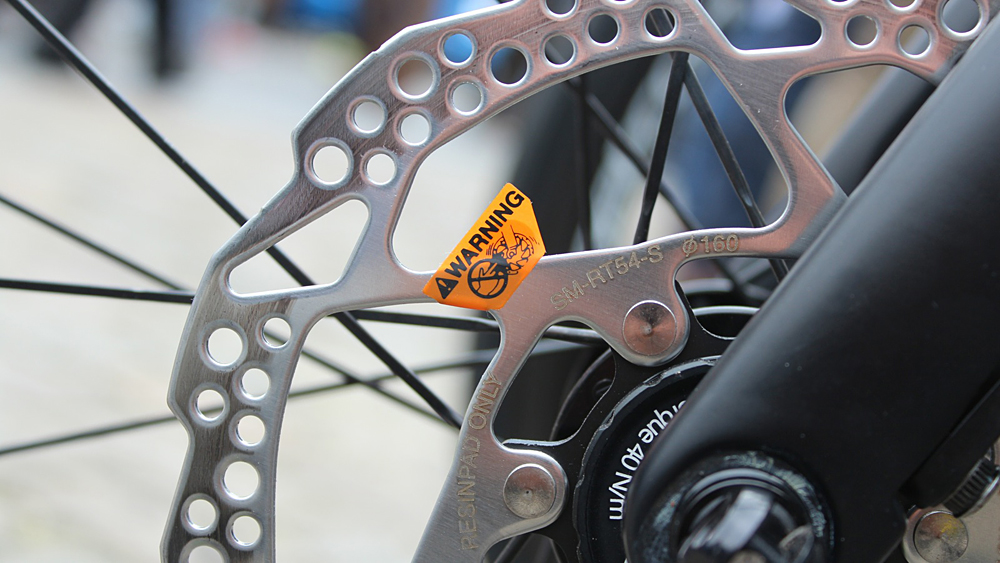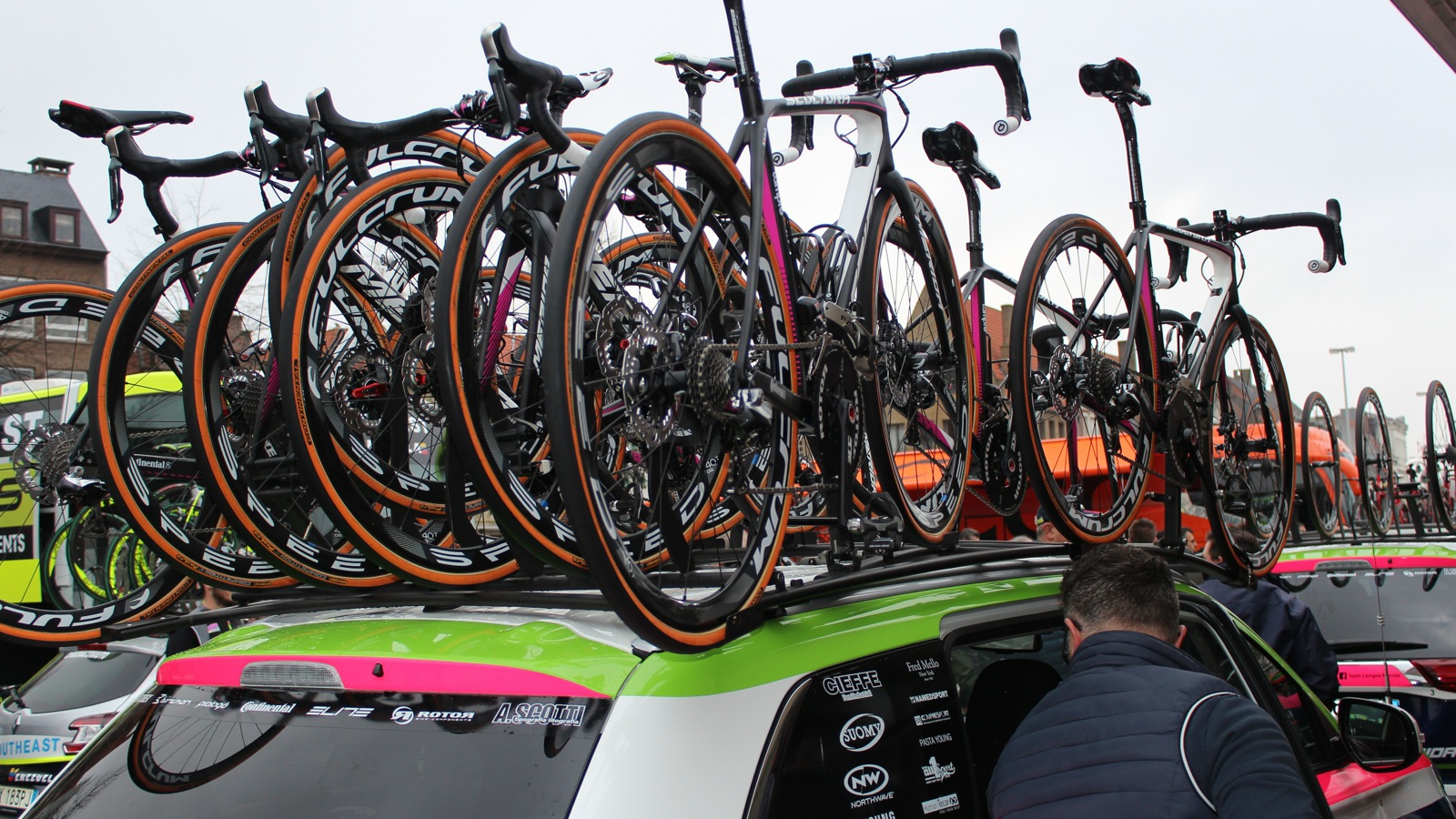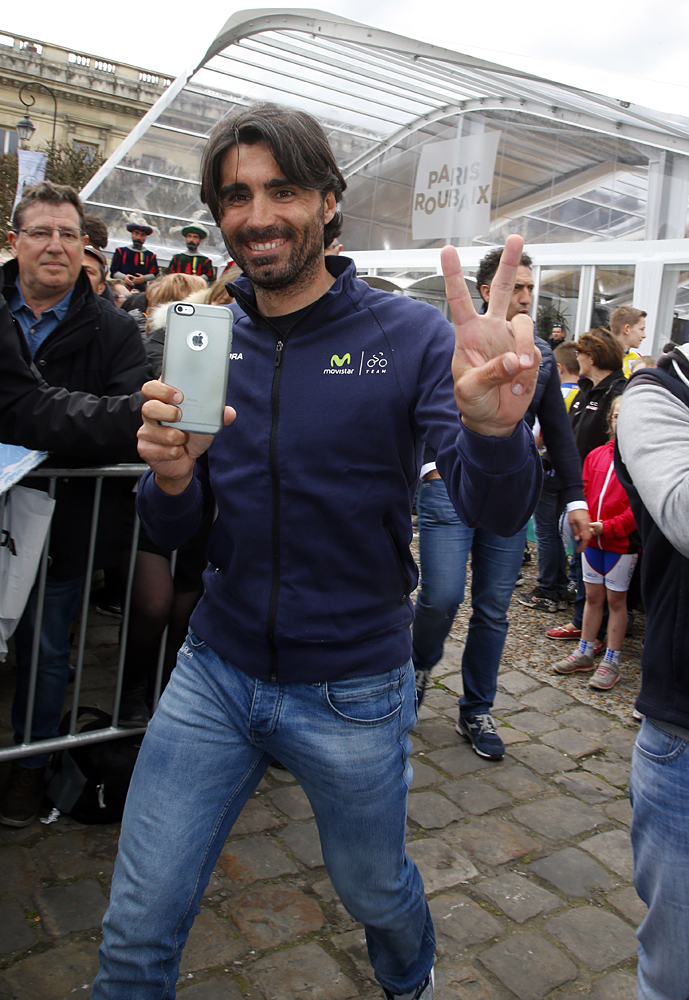Safety concerns behind UCI's move to suspend use of disc brakes
Governing body to continue consultation on the matter



The Union Cycliste Internationale (UCI) has confirmed in a formal statement that it has decided to suspend with immediate effect the trial of disc brakes In professional road racing following the serious injuries suffered by Movistar rider Fran Ventoso at Sunday's Paris-Roubaix, stating that "rider security has always been and will always remain its absolute priority".
The UCI said the decision “follows a request to do so made by the Association Internationale des Groupes Cyclistes Professionnels (AIGCP) – which represents all professional cycling teams – following the injuries suffered by Movistar Team rider Francisco Ventoso at Sunday’s Paris-Roubaix Classic. This request is supported by the Cyclistes Professionnels Associés (CPA), which represents riders.”
Although the UCI came under criticism from the CPA and individual riders for allowing disc brakes into the pro peloton, the UCI asserted that its Equipment Commission engaged in extensive consultations with representatives of teams, riders, mechanics, fans, commissaires and the bicycle industry via the World Federation of the Sporting Goods Industry (WFSGI).
The first tests of disc brakes in professional road races were carried out in August and September 2015. WorldTeams were given the possibility to test bikes mounted with these brakes at two events of their choice. Tests occurred at the Eneco Tour and the Tour of Spain, sparking debate about their use and concerns about rider safety in the case of accidents. The UCI then decided to authorise riders from all categories of professional road teams to use disc brakes in 2016. As a consequence several teams began to use disc brakes, including Lampre-Merida and Direct Energie –the two teams using disc brakes during Paris-Roubaix.
See also
- UCI suspends road disc brakes in races after Ventoso injury
- Ventoso blasts the use of disc brakes in the peloton
- Roompot forced to switch from disc brakes for Amstel Gold Race
Harald Tiedemann Hansen, the President of the Equipment Commission, first revealed that the UCI would suspend the use of disc brakes in professional road races on Wednesday evening to Procycling.no, because of the injury to Ventoso.
Ventoso vented his anger about disc brakes in a long personal letter distributed by his Movistar team on Wednesday. He also published photos of the deep wound and the numerous stitches needed to close it on social media.
The latest race content, interviews, features, reviews and expert buying guides, direct to your inbox!
His letter garnered support on social media from his fellow professional racers, with IAM Cycling's Larry Warbasse saying on Twitter, "We don't need more risks than we already have in professional cycling", and Ryder Hesjedal stating, "I have felt this way since the very beginning! Should have never happened!" about the introduction of disc brakes into the road peloton.
Ventoso was behind a crash on the Quérénaing à Maing sector of pavé, around the 140km mark. According to the Spaniard he didn’t crash but merely rode up against the bike in front of him, which had disc brakes, as many riders tried to avoid crashing. He didn’t notice the deep slash on his leg until he had began riding again.
“Shortly afterwards [after the crash], I have a glance at that leg: it doesn’t hurt, there’s not a lot of blood covering it, but I can clearly see part of the periosteum, the membrane or surface that covers my tibia,” Ventoso wrote. “I get off my bike, throw myself against the right-hand side of the road over the grass, cover my face with my hands in shock and disbelief, start to feel sick… I could only wait for my team car and the ambulance, while a lot of things come through my mind.”
Ventoso called for unified action by the riders in his open letter.
“We always think that it’s not a problem if it doesn’t happen to ourselves,” Ventoso wrote. “We always wait for horrible things to happen in order to take measures. Sooner or later, it could happen to anybody: it’s a matter of probability, we’ve all got the same. Pro riders should take a look beyond our own belly. Others tell us what we should do, but we just can’t forget we’ve got the power to choose, and we should make a choice.”

